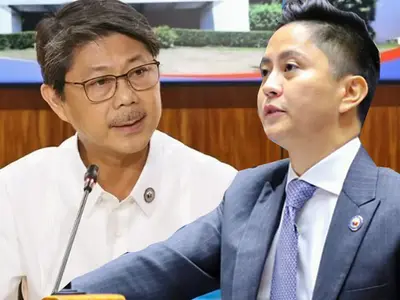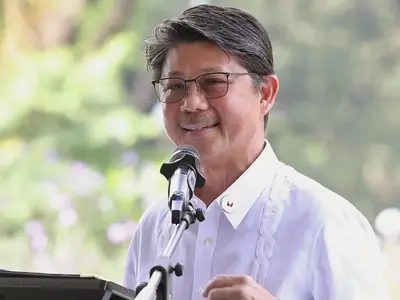
Rep. Joel Chua
THE seven Chinese tanker crew members arrested by the Philippine Coast Guard (PCG) should face charges for violating the country’s maritime and transportation laws, in addition to the immigration charges already in place, according to Third District of Manila Rep. Joel Chua.
“Dahil may isang buwan nang hawak ng PCG ang nasabing mga tripulanteng intsik, ipinapayo kong dapat hindi na lamang maging limitado sa mga kasong pang-immigration lang ang isampa laban sa mga tripulante,” said Chua.
“Para ma-justify ang patuloy na pagkakapiit ng mga tripulante sa poder ng PCG, ipinapayo kong sampahan na rin ang mga Tsino ng mga kasong administratibo kaugnay ng paglabag sa mga patakaran ng MARINA. Matapos ang pagsasampa ng mga kasong administratibo, ang maaaring maging susunod na hakbang ay ang pagsasampa na ng kaso laban sa mga nasakoteng Tsino sa mga korte ng Pilipinas, specifically, sa Admiralty courts,” he added.
INVOKING MARITIME JURISDICTION
By filing maritime cases against the crew, the Philippines can properly assert its maritime law enforcement authority over the West Philippine Sea and the exclusive economic zone.
Chua said that administrative charges may be filed first with Marina and criminal charges later at an admiralty court in Zambales.
Administrative charges may initially be filed to avoid escalating tensions over the maritime dispute and this approach would still establish the Philippines’ jurisdiction over the area.
DIPLOMATIC LEVERAGE.
The detained crew members could serve as bargaining chips in potential diplomatic negotiations, including back-channel talks with China, said Chua.
Facing maritime violations charges would allow the PCG to retain custody of the crew during these negotiations.
CRIMINAL CHARGES
If warranted, criminal charges related to maritime law violations can be filed at a later stage.
However, the initial focus should be on asserting the Philippines’ maritime authority through administrative proceedings.
By pursuing maritime violation charges alongside immigration cases, the Philippine government can maintain a calibrated approach while upholding its sovereign rights and protecting its interests in the West Philippine Sea, Chua added.
Another matter that should be brought to public light is the agreement between the coast guards of the Philippines and China that was reportedly signed during the state visit of then-president Rodrigo Duterte to China on October 20, 2016. The contents of that agreement should be made public.



